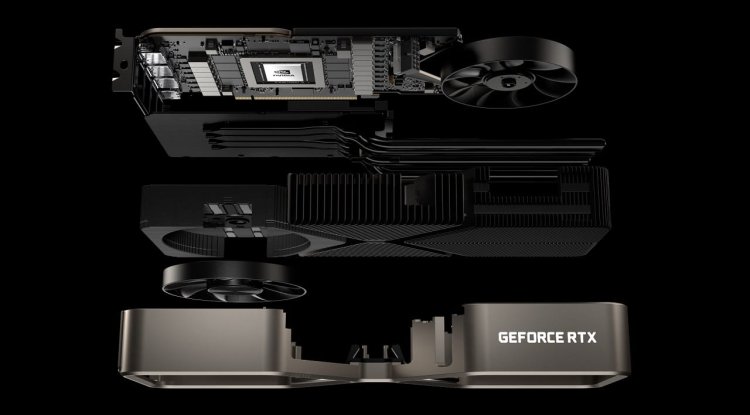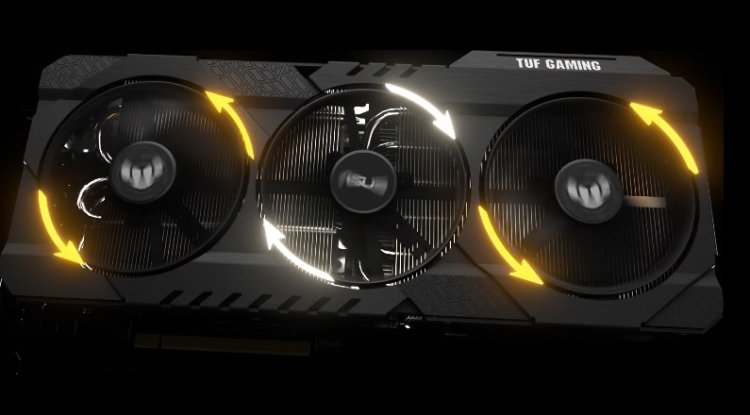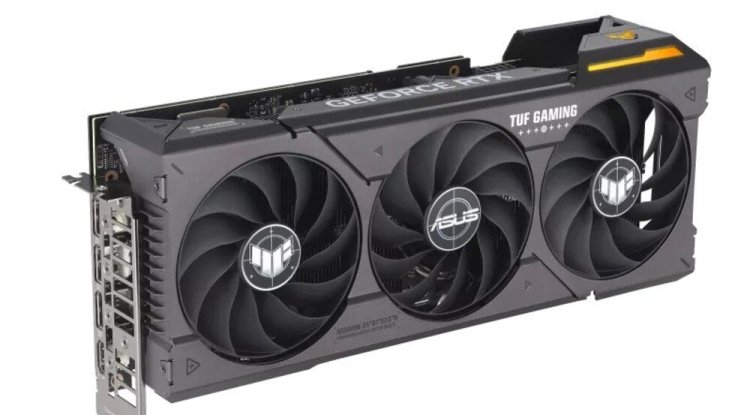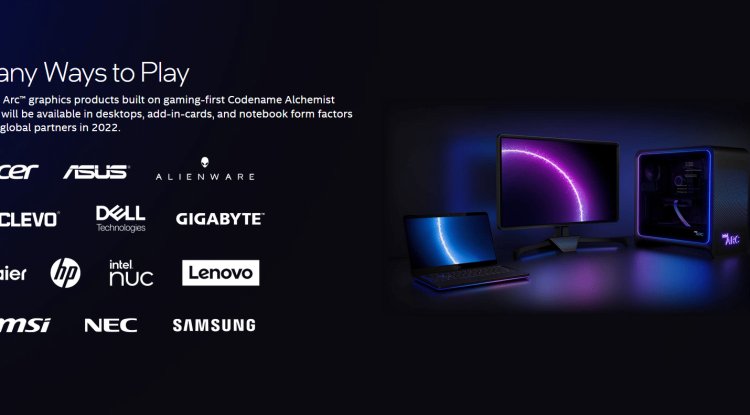Geforce RTX 3080 12GB in the test
Since January 11, Nvidia's Geforce RTX 3080 12GB has been courting the favor of demanding PC gamers, however, it suffers from poor availability and high prices.

Since January 11, Nvidia's Geforce RTX 3080 12GB has been courting the favor of demanding PC gamers - however, it suffers from poor availability and high prices. That doesn't prevent us from subjecting the RTX 3080 12GB ("RTX 3080 Super") to a detailed test, after all, it's the card that should have been released at the end of 2020 to make everyone interested happy.
If a new graphics card appears, it has to prove itself. Nvidia let the launch of the RTX 3080 12GB go by almost without comment, there was neither a press briefing nor a driver in advance so it was impossible to carry out extensive tests at the start of sales. So we waited for the release of the official 511.17 drivers and got started - curtain up for the RTX 3080 12GB, which should actually be called "RTX 3080 Super".
Geforce RTX 3080 12GB: positioning
There is an average performance difference of 14 percent between the Geforce RTX 3080 and Geforce RTX 3090 - less in low resolutions such as Full HD, more in Ultra HD. Nvidia already filled the gap in mid-2021 with the Geforce RTX 3080 Ti , which achieves around 96 percent of the reigning top model RTX 3090. Now, with the Geforce RTX 3080 12GB, another model is squeezed into the dense portfolio - without a public price recommendation and without a Founders Edition, the board partners are allowed to switch and rule.
The Geforce RTX 3080 12GB is the fourth graphics card based on the "Gamer Ampere" top model GA102. It is placed in the Nvidia portfolio between the original RTX 3080 - hereinafter referred to as RTX 3080 10GB - and the RTX 3080 Ti. As mentioned at the beginning, there is not much room between the fastest and the slowest GA102 graphics card, they only separate more in exceptional cases than 15 percent. In view of the same GPU basis with more or less deep cuts, this is not surprising. The focus is on the storage capacity because here the differences are usually larger than in performance. The RTX 3080 started in autumn 2020 with 10 GB, its sister RTX 3090 with 24 GB. The RTX 3080 Ti followed with 12 GB - and the RTX 3080 12GB does the same. VRAM: The 12 is the new 8
More and more graphics cards are appearing with 12 GB. The latter is technically closely linked to the rest of the storage subsystem. For example, if a graphics card has 12 memory controllers, each of them should supply (at least) one memory chip. Whether it's 512-MB, 1-GB, or even 2-GB chips per channel doesn't matter for the transfer rate. However, the capacity is always a multiple of 2, anything else would be asymmetrical and therefore undesirable. If we stay with the example with 12 memory controllers, capacities of 6, 12, 24, or even 48 GB could be realized (the latter by using twice as many memory chips connected half as fast). All of that would be possible with a 384-bit chip (12 × 32 bits) like the Nvidia GA102.
The "crooked" quantities of 10 and 11 GB are always the results of an interface cut in which individual memory controllers are shut down. Whether GTX 1080 Ti, RTX 2080 Ti, or RTX 3080, the term "memory interface" is to be taken literally for all of them, they have to make do with 352 or even 320 bits. This affects not only the capacity but also the memory transfer rate. With 384 instead of 320 bits, the copy throughput is 20 percent higher (with the same clock).
After this little digression, the new Geforce RTX 3080 12GB can be better assessed. It is a hybrid of RTX 3080 10GB and RTX 3080 Ti, with a tendency towards the large model. RTX 3080 12GB and RTX 3080 Ti both have a full 384-bit interface, which connects 12 GB GDDR6X memory with an effective data rate of 19 Gigatransfers/s. This results in a memory transfer rate of 912 GB/s and, by the way, the full Level 2 cache of 6 MB. In terms of arithmetic units, the RTX 3080 12GB is more similar to the RTX 3080 10GB, it is 8,960 to 8,704 FP32-ALUs (+3 percent). Depending on the focus of a game, the RTX 3080 12GB places itself in between. Now let's get to the overview of all performance-related data:
| Graphics card | RTX 3090 | RTX 3080 Ti | RTX 3080 12GB | RTX 3080 10GB | RX 6900 XT | RX 6800 XT |
|---|---|---|---|---|---|---|
| Reference card available? | And | And | no | And | And | And |
| market launch | 24.09.2020 | 03.06.2021 | 11.01.2022 | 17.09.2020 | 08.12.2020 | 18.11.2020 |
| architecture | Ampere | Ampere | Ampere | Ampere | RDNA 2 | RDNA 2 |
| Codename/Confection | GA102-300 | GA102-225 | GA102-220 | GA102-200-Kx | Navi 21 XTX | Ships 21 XT |
| Chip size (pure die) | 628 mm² | 628 mm² | 628 mm² | 628 mm² | 520 mm² | 520 mm² |
| Transistors graphics chip (million) | 28.000 | 28.000 | 28.000 | 28.000 | 26.800 | 26.800 |
| Manufacturing process (Foundry) | 8LPP (Samsung) | 8LPP (Samsung) | 8LPP (Samsung) | 8LPP (Samsung) | 7N (TSMC) | 7N (TSMC) |
| DirectX 12 Feature Level | 12_2 | 12_2 | 12_2 | 12_2 | 12_2 | 12_2 |
| Shader-Cluster (CUs/SMs) | 82 | 80 | 70 | 68 | 80 | 72 |
| FP32-ALUs / TMUs / ROPs | 10.496/328/112 | 10.240/320/112 | 8.960/280/96 | 8.704/272/96 | 5.120/320/128 | 4.608/288/128 |
| Ray Tracing Units | 82 | 80 | 70 | 68 | 80 | 72 |
| Tensor Core | 328 | 320 | 280 | 272 | - | - |
| Infinity Cache on-die (MiB) | - | - | - | - | 128 | 128 |
| GPU Boost Clock in Games (MHz) | 1.695 | 1.665 | 1.710 | 1.710 | 2.015 | 2.015 |
| FP16 Performance ALUs (TFLOPS) | 35,6 | 34,1 | 30,6 | 29,8 | 41,3 | 37,1 |
| FP32/FP64 Performance ALUs (TFLOPS) | 35,6/0,56 | 34,1/0,53 | 30,6/0,48 | 29,8/0,47 | 20,6/1,29 | 18,6/1,16 |
| Füllrate (Mtex/Mpix pro Sek.) | 556,0/189,8 | 532,8/186,5 | 478,8/164,2 | 465,1/164,2 | 644,8/257,9 | 580,3/257,9 |
| Level 2 cache size (KiB) | 6.144 | 6.144 | 6.144 | 5.120 | 4.096 | 4.096 |
| Memory Binding (Bit) | 384 | 384 | 384 | 320 | 256 | 256 |
| Speed RAM (GTs/MHz) | 19,5/9.752 | 19,0/9.502 | 19,0/9.502 | 19,0/9.502 | 16,0/8.000 | 16,0/8.000 |
| Storage type | GDDR6X | GDDR6X | GDDR6X | GDDR6X | GDDR6 | GDDR6 |
| Transfer rate memory (GB/s) | 936 | 912 | 912 | 760 | 512 | 512 |
| Storage capacity (MiB) | 24.576 | 12.288 | 12.288 | 10.240 | 16.384 | 16.384 |
| PCI-Express-Standard | 4.0 | 4.0 | 4.0 | 4.0 | 4.0 | 4.0 |
| PCI-Express-Stromanschlüsse | 1× 12-Pol | 1× 12-Pol | Mind. 2× 8-Pol | 1× 12-Pol | 2× 8-Pol | 2× 8-Pol |
| Typical power consumption | 350 Watt | 350 Watt | 350 Watt | 320 Watt | 300 Watt | 300 Watt |
| Recommended price (RRP) | 3,000 dollars | 2,100 dollars | unknown | 1,700 dollars | 1,700 dollars | 1,300 dollars |





































